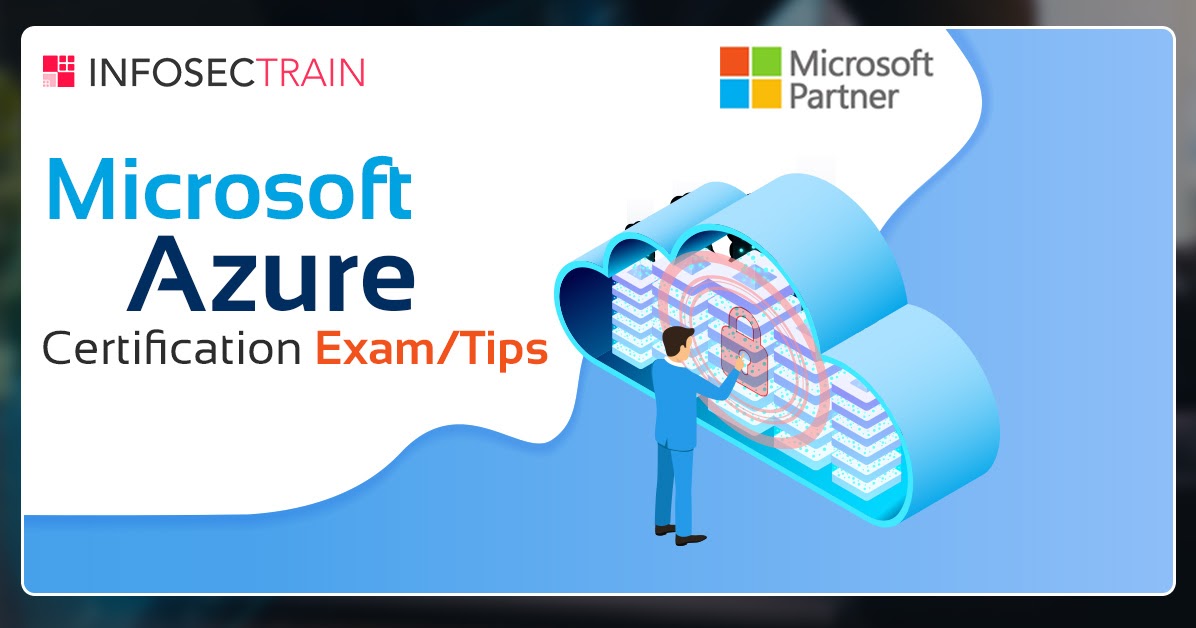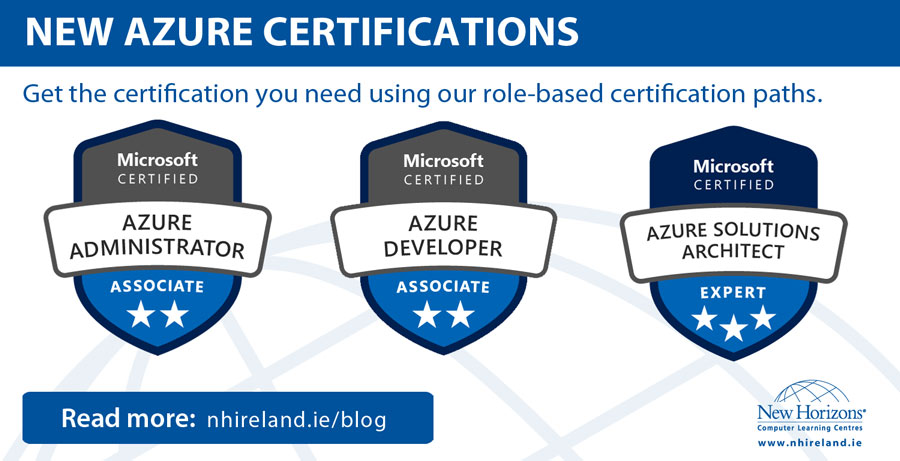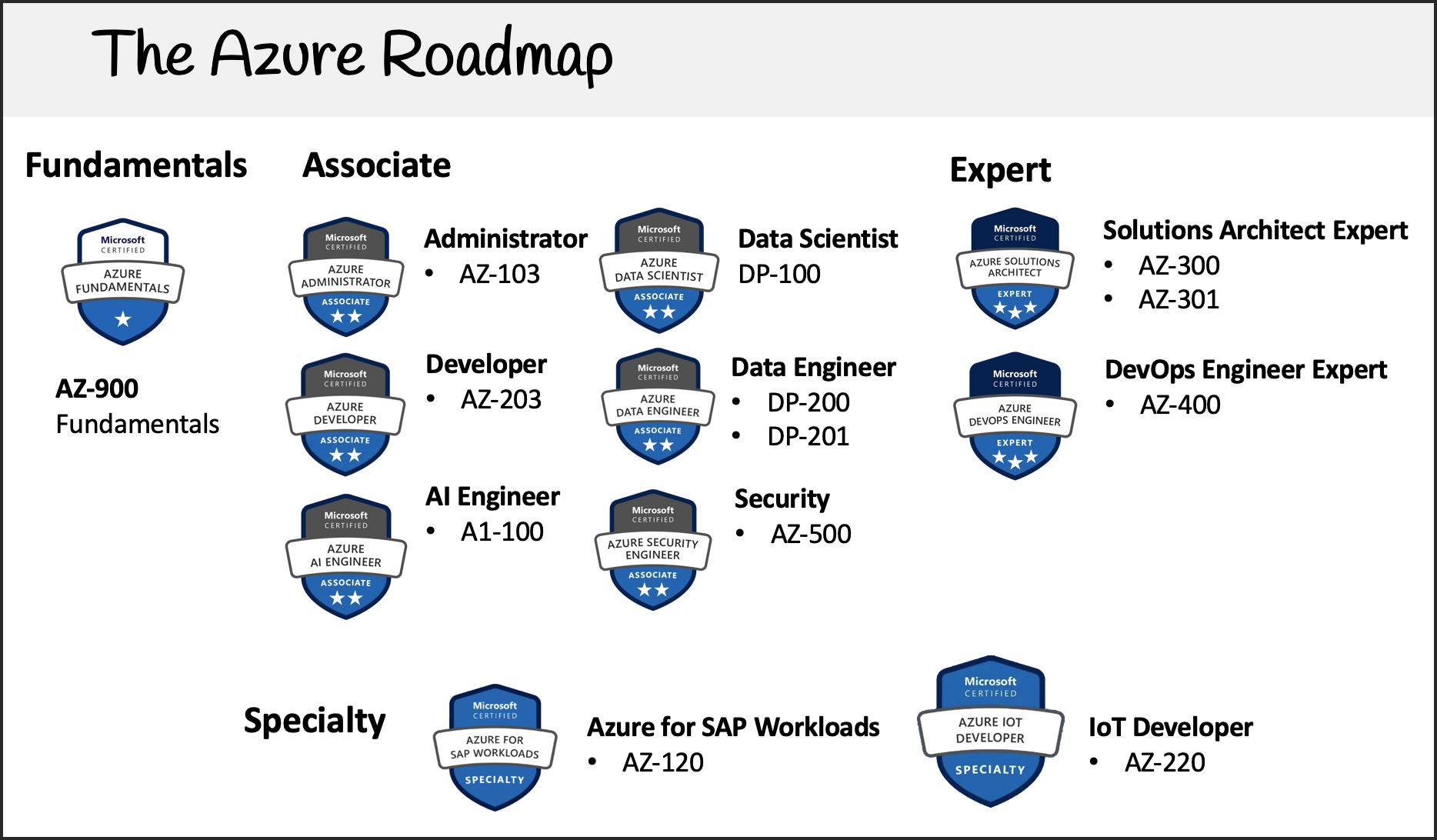Understanding Azure Certifications and Their Importance
Azure certifications are professional credentials that validate your expertise in designing, implementing, and managing Microsoft Azure services. These certifications demonstrate your proficiency in cloud technologies and your commitment to staying updated with the latest Microsoft innovations. Obtaining an Azure certification can lead to career advancement, increased salary potential, and a competitive edge in the job market.
Microsoft offers various Azure certification paths, including Azure Administrator, Azure Developer, Azure Solutions Architect, and Azure Data Engineer. Each path caters to different roles and responsibilities within the Azure ecosystem, requiring specific prerequisites, skills, and job roles. For instance, the Azure Administrator path focuses on managing Azure environments, while the Azure Developer path emphasizes building cloud applications and services.
Choosing the right Azure certification path depends on your career goals and current skillset. By aligning your certification with your desired role, you can enhance your professional growth and better serve your organization’s needs. Moreover, Azure certifications are designed to accommodate learners at all stages, from beginners to experts, ensuring that everyone has an opportunity to expand their knowledge and skills.
Identifying the Right Azure Certification Path for You
Selecting the appropriate Azure certification path is crucial for your professional growth and success in the Azure ecosystem. Microsoft offers various certification paths tailored to different roles and responsibilities:
- Azure Administrator: This path focuses on managing Azure environments, including configuring and managing virtual machines, storage, and networking services. Candidates should have a foundational understanding of Azure services, PowerShell, and Azure CLI.
- Azure Developer: This path emphasizes building cloud applications and services using Azure tools, frameworks, and services. Candidates should be proficient in programming languages such as C#, Java, or Python and have experience with Azure development tools and services.
- Azure Solutions Architect: This role requires designing and implementing solutions that span across multiple Azure services and platforms. Candidates should have expertise in Azure infrastructure, networking, security, and governance.
- Azure Data Engineer: This path focuses on designing and implementing Azure-based data solutions, including big data, data warehousing, and advanced analytics. Candidates should be proficient in Azure data services, SQL, and data analytics tools.
When choosing a certification path, consider your current skillset, career aspirations, and the job roles available in your organization or the industry. By aligning your certification with your desired role, you can enhance your professional growth and better serve your organization’s needs.
Preparing for Your Azure Certification Exam
Preparing for your Azure certification exam requires a strategic approach and dedication. Follow these steps to ensure your success:
- Study Resources: Utilize official Microsoft learning resources, such as the Azure documentation and Azure Fundamentals learning path, to build a solid foundation. Additionally, consider enrolling in instructor-led training from Microsoft Learn or other reputable providers.
- Practice Exams: Test your knowledge with practice exams, which simulate the actual exam environment and help you identify areas where you need improvement. Microsoft Learn offers free assessments for various Azure roles.
- Hands-on Experience: Gain practical experience by working with Azure services in a lab environment or through your job. Hands-on experience solidifies your understanding of key concepts and helps you become more comfortable with the platform.
- Exam Format, Objectives, and Weightages: Familiarize yourself with the exam format, objectives, and weightages to ensure you focus on the most critical areas. Microsoft provides detailed exam guides for each certification on the Microsoft Learning website.
By following these steps, you can optimize your study plan and increase your chances of success in obtaining your Azure certification.
Microsoft Learn: A Key Resource for Azure Certification Preparation
Microsoft Learn is an interactive, self-paced learning platform designed to help candidates prepare for Azure certifications. It offers a wide range of features and benefits that can significantly enhance your learning experience:
- Interactive Learning Paths: Microsoft Learn provides structured learning paths that guide you through the process of acquiring new skills and knowledge. These paths are tailored to various Azure roles and certification paths, ensuring you cover all necessary topics.
- Labs and Modules: Hands-on labs and modules allow you to practice your skills in a real-world environment. This hands-on approach helps you better understand and retain the information, increasing your chances of success in the certification exam.
- Skill Badges: Earn skill badges by completing specific learning paths and demonstrating your expertise in various Azure services. Skill badges can be shared on your resume and professional networking platforms, showcasing your achievements to potential employers.
- Progress Tracking: Microsoft Learn enables you to track your progress and stay organized throughout your learning journey. You can monitor your completed modules, earned badges, and overall learning progress, making it easy to identify areas where you need improvement.
By incorporating Microsoft Learn into your study plan, you can gain the required skills and knowledge needed to succeed in your Azure certification exam.
Additional Study Resources and Exam Tips
Supplement your learning experience with these additional study resources and exam tips to maximize your chances of success in obtaining your Azure certification:
- Books: Refer to books such as “Microsoft Azure for Architects” by William R. Stanek or “Exam Ref AZ-300: Microsoft Azure Architect Technologies” by Michael Washam, Scott Cate, and Oguz Pastirmaci. These books provide in-depth knowledge and cover various Azure services and best practices.
- Online Courses: Enroll in online courses on platforms like Udemy, Pluralsight, or LinkedIn Learning. These courses often include video lessons, quizzes, and hands-on labs, making them an engaging and interactive way to learn.
- Practice Tests: Utilize practice tests from providers like MeasureUp, Whizlabs, or Udemy to gauge your readiness for the exam. Practice tests help you familiarize yourself with the exam format and identify areas where you need improvement.
Exam Tips:
- Time Management: Allocate your time wisely during the exam. Read questions carefully, and manage your time to ensure you answer all questions.
- Understanding the Questions: If you encounter a challenging question, try to break it down into smaller parts. Focus on understanding what the question is asking before attempting to answer it.
- Process of Elimination: If you’re unsure of the correct answer, use the process of elimination to narrow down your options. Eliminating incorrect answers can increase your chances of selecting the correct one.
By incorporating these additional study resources and exam tips, you can further enhance your learning experience and improve your chances of success in obtaining your Azure certification.
Scheduling and Preparing for the Azure Certification Exam
Once you’ve thoroughly prepared for your Azure certification exam, follow these steps to schedule and prepare for the big day:
- Select a Testing Center or Online Proctoring: Choose between testing at a physical Pearson VUE testing center or taking the exam online with remote proctoring. Consider factors such as convenience, availability, and personal preference when making your decision.
- Schedule Your Exam: Visit the Pearson VUE website to schedule your exam. You’ll need to create an account, select your exam, and choose a date and time that works best for you. Be sure to schedule your exam with enough time to continue studying and reviewing key concepts.
- Prepare for the Exam Day: On the day of your exam, arrive early to allow time for check-in and identification verification. Bring a valid, government-issued photo ID, such as a driver’s license or passport. Review key concepts and relax to ensure you’re in the right mindset for the exam.
By following these steps, you can confidently schedule and prepare for your Azure certification exam, increasing your chances of success and moving one step closer to your certification goal.
Maintaining and Renewing Your Azure Certification
Maintaining your Azure certification is crucial to ensure your skills and knowledge remain up-to-date with the latest Microsoft technologies and best practices. To maintain your certification, you must complete the required continuing education credits within a specified time frame:
- Continuing Education Credits: Earn continuing education credits by completing relevant learning activities, such as instructor-led training, online courses, or attending Microsoft conferences. Keep track of your completed activities and report them to Microsoft to maintain your certification.
- Recertification: Depending on the certification, you may need to recertify every one to three years. Recertification ensures you’re current with the latest Azure features, services, and best practices.
Maintaining your Azure certification offers several benefits:
- Stay Updated: Regularly updating your skills and knowledge helps you stay competitive in the job market and ensures you’re familiar with the latest Azure technologies and best practices.
- Employer Confidence: Demonstrating your commitment to maintaining your certification can increase your employer’s confidence in your abilities and expertise.
- Professional Growth: Continual learning and development can lead to new opportunities, career advancement, and increased salary potential.
By prioritizing the maintenance and renewal of your Azure certification, you can continue to grow professionally and contribute to the success of your organization in the Azure ecosystem.
Celebrating Your Azure Certification Success
Congratulations on earning your Azure certification! This achievement showcases your dedication to mastering Azure technologies and your commitment to staying current with the latest industry trends. Here’s how to make the most of your new certification:
- Update Your Resume and LinkedIn Profile: Highlight your new certification on your resume and LinkedIn profile to attract potential employers and demonstrate your expertise in Azure technologies.
- Expand Your Professional Network: Connect with other Azure professionals on networking platforms, such as LinkedIn or Microsoft’s community forums, to share knowledge, experiences, and best practices.
- Apply for Relevant Job Roles: Explore job opportunities that align with your new certification and career goals. Leverage your certification as a competitive advantage when applying for roles such as Azure Administrator, Azure Developer, Azure Solutions Architect, or Azure Data Engineer.
- Pursue Higher-Level Certifications: Continue advancing your career by pursuing higher-level Azure certifications. Microsoft offers role-based certifications for experienced professionals, as well as specialized certifications in areas like security, AI, and machine learning.
By celebrating your achievement, updating your professional profile, and pursuing new opportunities, you can fully leverage your Azure certification to further advance your career in the Azure ecosystem.






